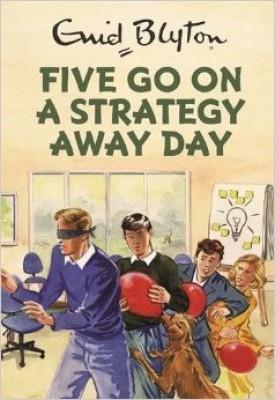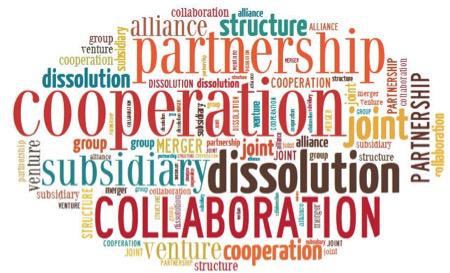Get Away!?

As Spring bursts through the door, thoughts often turn towards an annual team away day - a day out of the office, as a team – considerations of the who, what, where and how; though not always the why.
In some organisations, away days don’t happen at all. In others, they are little more than an expected ‘perk’ - a day out somewhere nice. Not that they shouldn’t be jolly, and an attractive, creative setting can be very fruitful, but carving out time, together as a team, away from the demands of everyday work, shouldn’t be seen as a luxury. If done well, with thought and planning, away days can be vital and transformative.
As well as the undeniable benefits of a break from the usual routines, and the (sometimes healing) chance to spend less pressured time with colleagues, the most successful away days that I have been a part of (both facilitating and participating) have been those with a clear purpose. And a purpose that relates to the mission, to the work and the issues that are current. But it doesn’t have to be too adventurous - in some ways the more modest the better. What’s important is that everyone understands that there is a direction and has the chance to contribute, to shape and to listen – that they are not simply being ‘preached at’.
So why get away? There are several reasons to take a day away, and three of them start with the letter R! - Reflect, Refocus, and Realign.
- Reflect – much of our working life is frantically busy; racing from one task to the next, with barely a moment to wonder ‘why?’ It is time well spent to stand back, to reflect upon our mission, to see the bigger picture and where we fit in - why are we here? are we doing the right things?
- Refocus – once we’ve checked in on why we’re doing what we are, it’s good to create the mental space to consider whether we’re doing the right things and not just being busy – are we going about things the right way? Whilst the end purpose maybe the same, do we need a new goal?
- Realign – with the organisational goals (re)established it can be useful to realign – to take stock of the progress made so far and to think about the right activities for the coming 12 months – is it ‘business as usual’? Should there be some new activities? Should some things change direction or be wound down?
To achieve this some away days are run ‘in house’, but there are good reasons for having an external facilitator – if you’re thinking of one here are some tips:
- Away days are often in addition to everyday work and so planning them can be a good intention but that only happens that morning. An external facilitator should help you think about this well in advance, and shape the day accordingly.
- It can be important to think differently and someone from outside, especially if they regularly run such days, should bring a freshness and creativity that creates a new viewpoint and breaks through set patterns of thought.
- An external facilitator frees people up in different ways:
- with someone from outside the usual dynamics shift and quieter voices more readily find they can be heard,
- those who usually lead are enabled to take a less up-front role and given space to reflect on what others are saying,
- with someone else keeping things to time and on track everyone can focus on the content and others contributions.
So, whilst a good away day is an investment (not least in staff time away from other tasks), done well it should pay returns many times over in terms of morale and team cohesion, and ultimately in fulfilling the mission and re-galvanising everyone to deliver it - arguably the most important day of the year.
